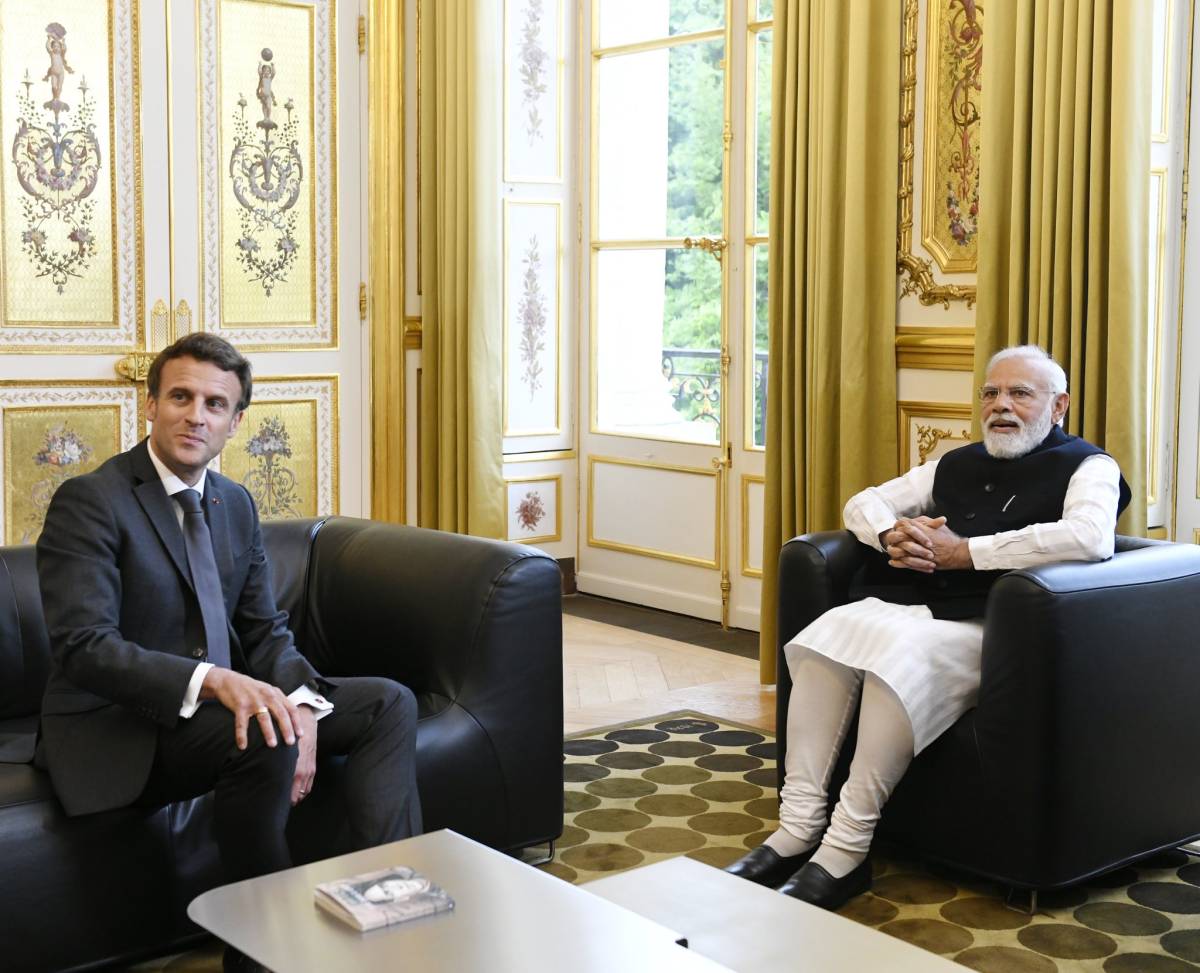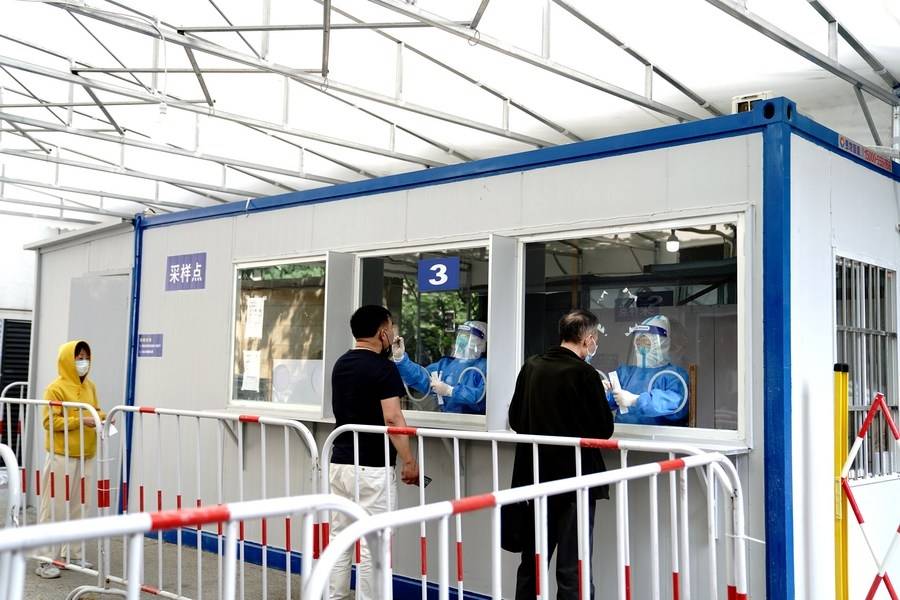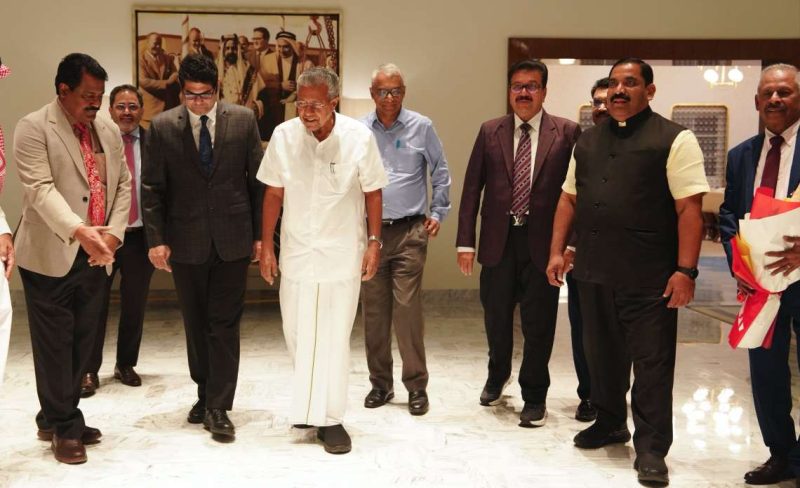In Paris, Prime Minister Modi and French President Emmanuel Macron held a meeting in one-on-one and delegation-level formats where they discussed a wide range of issues including the situation in Ukraine and Afghanistan
Prime Minister Narendra Modi paid visit to France on Wednesday on his way back from the second India-Nordic Summit in Copenhagen.
In Paris, Prime Minister Modi and French President Emmanuel Macron held meetings in one-on-one and delegation-level formats where they discussed a wide range of issues including the situation in Ukraine and Afghanistan.
The two leaders held discussions on the entire range of bilateral issues, including cooperation in defence, space, blue economy, civil nuclear and people-to-people ties.
The two leaders also took stock of the regional and global security outlook and discussed ways to work together in making the India- France Strategic Partnership a force for global good.
The Prime Minister’s visit to France “displayed the strong friendship and goodwill not only between the two countries but also between the two leaders”.
Prime Minister Modi invited President Macron to visit India at the earliest opportunity.
During the meeting, France reiterates its strong condemnation of the unlawful and unprovoked aggression against Ukraine by Russian Forces.
India and France expressed serious concern at the ongoing conflict and humanitarian crisis in Ukraine.
They “unequivocally” condemned civilian deaths in Ukraine and called for an immediate cessation of hostilities to bring parties together to promote dialogue and diplomacy to find an immediate end to the suffering of the people.
Both countries underlined the need to respect UN Charter, international law and the sovereignty and territorial integrity of states.
The two leaders discussed the regional and global implications of the conflict in Ukraine and agreed to intensify coordination on the issue.
Further, India and France express deep concern about the current aggravation of global food security and nutrition, already impacted by the Covid-19 pandemic, and especially in developing countries.
“The two countries are committed to enabling a coordinated, multilateral response to address the risk of aggravated food crisis because of the conflict in Ukraine, including through initiatives such as the Food and Agriculture Resilience Mission (FARM), which aims at ensuring well-functioning markets, solidarity and long-term resilience,” reads a statement.
On Afghanistan, India and France expressed serious concern on the humanitarian situation and violation of human rights and reiterated strong support for a peaceful, secure and stable Afghanistan, emphasizing respect for its sovereignty, unity and territorial integrity and non-interference in its internal affairs.
They called for an inclusive and representative government, and respect for the rights of women, children and minorities.
Both the countries also reaffirmed the UNSC Resolution 2593 (2021) and emphasised on zero tolerance for the use of Afghan territory for spreading terrorism in other parts of the world, and agreed to work together in this regard, including at the UN Security Council.
They welcomed the ongoing intense cooperation across all defence domains. Joint exercises (Shakti, Varuna, Pegase, Desert Knight, Garuda) illustrate efforts towards better integration and interoperability wherever possible.
Meanwhile, maritime cooperation between India and France has “reached new levels of trust and will continue through exercises, exchanges and joint endeavours throughout the Indian Ocean”.
The two countries said they would “respond in a coordinated and multilateral way” to the risk the conflict would intensify a global food crisis, with Ukraine one of the world’s main wheat producers.
Ahead of the meeting, Macron’s office had said he would “emphasise the consequences of the war for the international order well beyond the European Union, including in Asia” to PM Modi.
France wants to “help the Indians diversify their supply” away from Russian arms and energy, officials added.
The aim, they said, “is not to leave the Indians with no way out, but to offer solutions”.
PM Modi, who is on a European tour, told reporters after meeting with German Chancellor Olaf Scholz in Berlin on Monday that “there won’t be any winners in this war and everyone will lose”.
The Elysee said Mr Macron has an “extremely warm relationship” with PM Modi, who has visited France three times since 2017, while the French leader went to India in 2018.
The two men embraced and posed for photographs when PM Modi arrived in the courtyard of the Elysee Palace, where he was also greeted by Macron’s wife Brigitte.
Going into the meeting, officials described France’s relationship with India as “trusting”, and the joint statement reaffirmed the two countries’ desire to strengthen the “strategic Franco-Indian partnership, particularly in the Indo-Pacific”.
Securing France’s place in the region is especially important after Britain, the United States and Australia last year sealed their AUKUS security pact — dumping a lucrative French contract to supply Canberra’s next generation of submarines along the way.
India has bought dozens of French Rafale fighter jets and six submarines, and cooperates with Paris on civil nuclear projects.
French state-owned energy giant EDF wants to build six next-generation EPR reactors in Jaitapur on India’s west coast.
The Elysee said it was pushing hard to get that deal signed, fitting in with Mr Macron’s vow ahead of his re-election last month to renew France’s nuclear industry and replace its fleet of ageing power plants.
ALSO READ-Boris pledges £300 m to Ukraine













